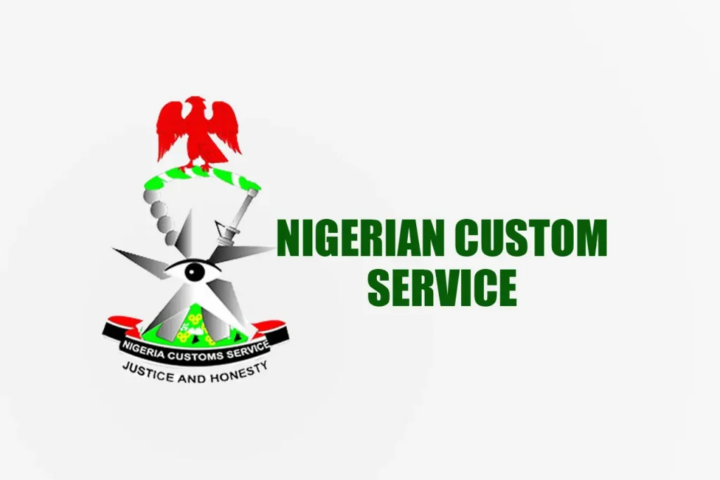The Nigeria Customs Service has declared that the Port Terminal Multi‑Purpose Limited (PTML) arm—responsible for managing operations at Apapa port—generated a total revenue of N204.7 billion during the first half of the year. The figure reflects robust activity at the port and shines a spotlight on PTML’s growing role in customs operations, trade facilitation, and port-generated revenue for government coffers.
According to the report, PTML’s revenue performance surpassed expectations, buoyed by strong import volumes, increased cargo throughput, and measures taken to reduce clearance delays. The revenue figure was formally announced during a regulatory briefing, where Customs officials highlighted how PTML’s integrated terminal operations have fostered efficiency, improved compliance, and enhanced inspection processes—benefits that contributed to accelerating revenue collection.

Customs leadership stated that the N204.7 billion collected represents not only port dues but also levies associated with duty collection, cargo inspection fees, value-added service fees, and escrow payments. The consolidated revenue reflects PTML’s ability to integrate customs operations directly into port terminal services—a model that has cut down bureaucratic touch points and streamlined trade-related payments.
An official explained that the terminal customs model empowers officers to process documentation and perform inspections within the port premises rather than offsite, thereby reducing transaction costs and turnaround times. “This co-location approach has helped us enforce more accurate valuation, reduce under-declaration, and capture legitimate cargo inflows promptly,” the source noted. These operational enhancements were credited with greater revenue realisation and improved trade transparency.
Customs also highlighted that substantial investments in non-intrusive scanning devices, mobile inspection units, and digital data exchange platforms contributed to improved risk management and targeted enforcement. These tools helped identify smuggled goods, fuel under-declaration cases, and avoid revenue leakages. PTML and Customs jointly reported that detected breach cases led to increased seizures and penalty recoveries, bolstering overall H1 revenue.
The N204.7 billion haul compares favourably to prior periods—reportedly marking a substantial increase over the same period in the previous year. Analysts say PTML’s model is illustrating how modern terminal-based customs operations can drive revenue while simultaneously improving trade facilitation.
Customs officials also revealed that the increased revenue performance enabled them to meet mandated remittance deadlines to the Federation Account and Special Funds tied to downstream sectors. PTML’s share of the collection is remitted in accordance with statutory schedules, ensuring that federal, state, and local revenue needs are fulfilled and public sector projects funded in line with expectations.
Despite the topline success, Customs acknowledged ongoing challenges. Stakeholders cited infrastructure bottlenecks—such as limited scanner coverage, terminal congestion, and intermittent power supply—as areas that demand urgent attention. These constraints, they argue, still create revenue inefficiencies and slow cargo processing. Customs pledged to collaborate with port authorities and PTML to resolve these issues before scaling the model further.
Several private sector experts welcomed the revenue news but echoed concerns about other systemic issues, including delays in issuing duty payment slips, occasional pricing disputes, and unpredictability in approval times for consignments. They recommended that PTML and Customs jointly expand outreach programmes, train terminal operators, and digitise more manual processes to deepen transparency and firm up confidence among importers and freight agents.
Business community leaders acknowledged that PTML’s customs integration has delivered measurable benefits in reduced demurrage costs, faster release of goods, and greater clarity in valuation. One importer observed that delivery lead time dropped significantly, allowing goods to clear within days rather than weeks—a change with direct impact on working capital costs and inventory management.
Looking ahead, PTML’s leadership signaled plans to expand the customs-integrated terminal model to other ports. Feasibility studies are reportedly underway to replicate the success in Lagos Harbor terminals, Tin Can Island, and selected inland dry ports. The goal is to harness the efficiencies gained at PTML for wider port reform and national revenue enhancement.
Customs also revealed plans to enhance performance tracking via quarterly dashboards, improved incident response protocols, and enhanced staff training in revenue audit and trade compliance. There is a commitment to ensure that revenue gains are not one-off but sustained through continual improvements in operational controls and accountability.
Officials further asserted that the consolidation between PTML and Customs lowers the risk of revenue leakages through collusion by creating visible audit trails and real-time tracking of cargo movements. As part of the governance framework, they said independent audits will be commissioned to validate revenue records and ensure integrity in collection and remittance.
The strong showing for H1 places PTML among the most productive arm of customs operations, providing a model for public-private collaboration that generates tangible fiscal returns. It also underscores the importance of modern customs strategies aligned with Nigeria’s trade ambitions, infrastructure upgrades, and anti-corruption campaigns.
In closing, the N204.7 billion revenue report highlights how integrated port and customs operations can turn ports into engines of trade efficiency and public revenue. With ongoing reforms, investment in infrastructure, and commitment to modernisation, PTML is positioning itself as a benchmark for the future of Nigerian trade facilitation. The challenge now lies in sustaining the performance, scaling the model, and ensuring that increased revenue translates into broad-based economic benefits.
Support InfoStride News' Credible Journalism: Only credible journalism can guarantee a fair, accountable and transparent society, including democracy and government. It involves a lot of efforts and money. We need your support. Click here to Donate
